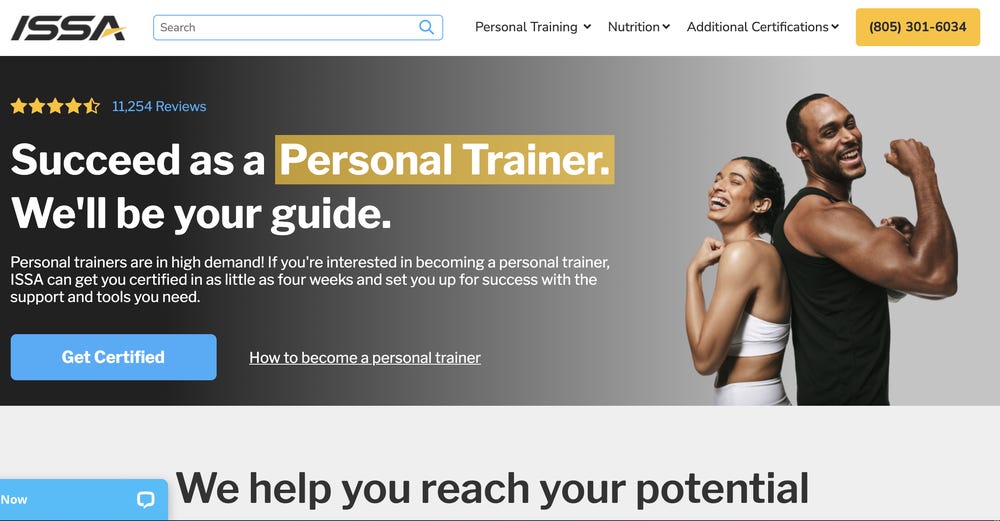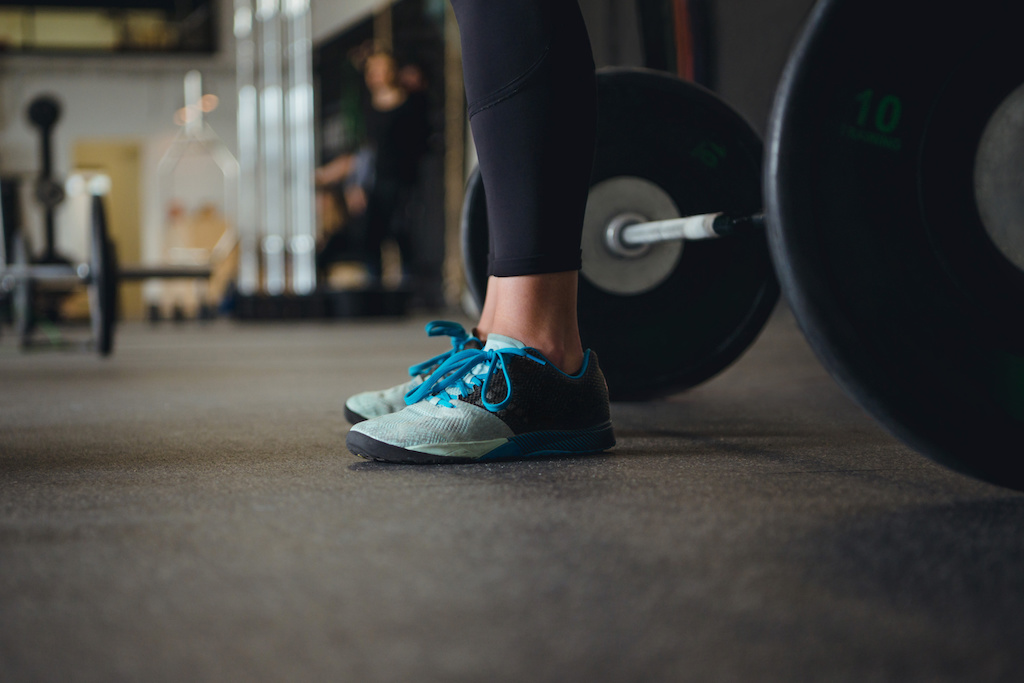
There are many reasons to renew personal training certification. One reason is that expired credentials could cause problems with your insurance. You should also renew to avoid losing your certification. This means that you will have to start over. The grace period may be extended depending on the certifying agency. You might need to pay an additional fee.
Recertification is required for NFPT every 2 years
The NFPT offers a wide range of preparation options and is a nationally recognized certification organization. The 120 multiple-choice questions will make up the test. There are six sections in the test, including professional development, training instruction, program design, and behavior coaching. The exam is proctored, and should take approximately 2 hours to complete. It is necessary that applicants have at most 60 days to prepare for the exam. To help you prepare for the test, the NFPT offers workshops lasting two days.
In order to maintain certification, fitness professionals must renew their NFPT certification every two years. Recertification can be both expensive and mentally exhausting. Recertification also only gives you one year worth of CEUs, workshops, and CEUs. Fortunately, most top-notch certifications last two or three years.

45 hours of continuing educational is required for ACE certification.
Continuing education is a key part of maintaining your ACE Certificate. It expands your skill set and builds your knowledge. It is backed up by research funded by ACE. It can be found in a variety forms. CECs may be earned online, or in person.
You should choose an organization that offers several programs to keep your certification. While the NCSF is the cheapest option, you should be aware that the exam itself costs nearly $300. You can usually find better deals with more respected organizations. Although certification is not required by law for most gyms, it is a requirement for many.
ISSA offers an online self-study course
If you'd like to renew your personal training certification, you can opt for the ISSA self-study program. It's available online at your convenience and can be completed in 30-60 minutes. It covers topics such as general fitness and metabolism, biomechanics. Anatomy, physiology, and more. You will receive a certificate of completion upon completion.
Every two years, you must renew your certification. Renewing your ISSA certification requires that you complete at least 20 hours worth of continuing education credits (CEUs). CEUs can be earned online through a variety of learning methods. In addition, you can also earn credits from other organisations or sources outside of ISSA.

NETA requires a job task analysis
A completed application form is required to renew your NETA Certification. The application must arrive at NETA 30 days before exam day. You can either mail or fax the application to them. Then, they will send you a confirmation email.
FAQ
Can I have alcohol at work?
Consuming large quantities of alcohol can cause you to gain weight. It is possible to increase your endurance by drinking moderate amounts of alcohol (one glass per day). It may reduce fatigue and muscle soreness from intense exercise.
How many hours sleep should I get each night?
The recommended sleep amount varies based on age, gender, individual needs, and other factors. Most adults need between 7 and 9 hours of sleep per night. Teenagers and young children generally need around 10 hours of sleep each night. This number decreases as they age.
What are Cardio Exercises?
Cardiovascular activities are any exercise that makes your heart work harder than normal. You can do this by running, swimming, biking, rowing and bicycling. These activities help you burn fat and increase your metabolism. They also strengthen your heart and lungs, which makes them great ways to stay fit.
Statistics
- Globally, 28% of adults aged 18 and over were not active enough in 2016 (men 23% and women 32%). (who.int)
- Globally, 81% of adolescents aged 11-17 years were insufficiently physically active in 2016. (who.int)
- In 2018, the World Health Assembly agreed on a global target to reduce physical inactivity by 15% by 2030 and align with the Sustainable Development Goals. (who.int)
- In high-income countries, 26% of men and 35% of women were insufficiently physically active, as compared to 12% of men and 24% of women in low-income countries. (who.int)
External Links
How To
How to stay fit during pregnancy
Your body experiences many changes when you are pregnant. Your metabolism slows down, and you eat less because you're growing a baby inside you. Insufficient sleep can make you feel sick. You can still enjoy this time of life, but you can stay healthy.
Before starting any exercise regimen, it's important to check with your doctor. You can have them tell you which exercises to avoid and which ones you can safely do. You should also eat healthy throughout your pregnancy. This includes eating plenty protein, fiber, iron. Third, try to drink lots of fluids. You lose a lot of fluids through sweating, so it is especially important to drink water during exercise. Take care of your feet. Wear shoes that are supportive and dry. If you're having morning sickness, make sure you eat something small like crackers or toast before getting out of bed. You might end up feeling nauseated.
-
Be healthy. A healthy diet is important throughout your entire pregnancy.
-
Stay Active. Daily exercise of at least 30 mins
-
Keep a healthy weight You can lose weight by eating smaller meals and snacks more often.
-
Get Enough Sleep. Try to get 7-9 hours of sleep each night.
-
Manage Stress. Learn relaxation techniques.
-
Avoid Alcohol. It can cause miscarriage as well as birth defects.
-
Be gentle with yourself. Don't push yourself too hard.
-
Take care of yourself. You can have someone look in on you if necessary.
-
Relax. Do things that make YOU happy.